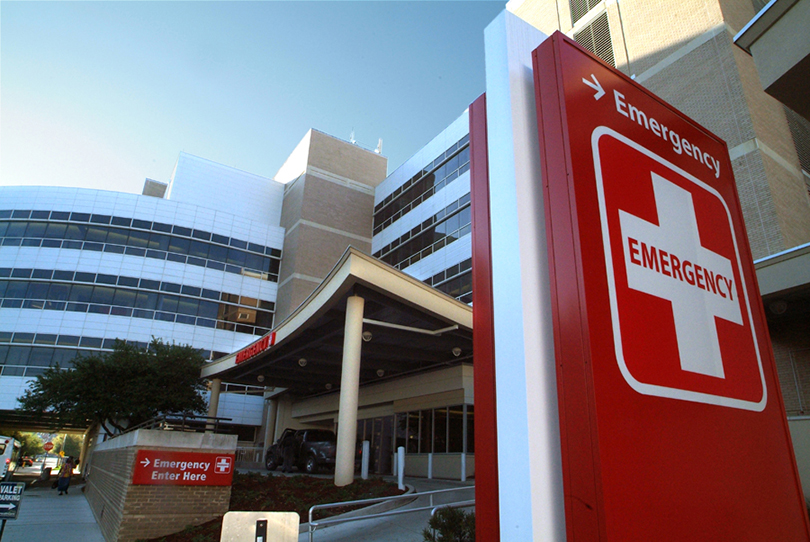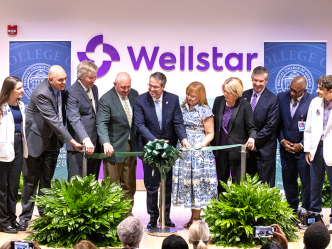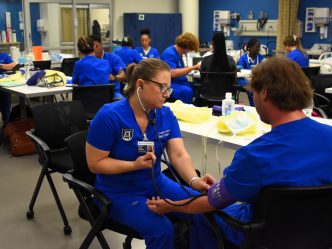Patients in rural Georgia communities will soon have access to some of the nation’s top emergency medical specialists without ever having to leave their community hospital, thanks to a new $368,501 grant from the U.S. Department of Agriculture to create Georgia’s first emergency telehealth network.
The network is anchored at Augusta University’s emergency department, which acts as the central hub, to provide remote consultation and health care services to patients in emergency rooms in five rural hospitals throughout Georgia, including Miller County Hospital in Colquitt, Crisp Regional Hospital in Cordele, Emanuel Medical Center in Swainsboro, Washington County Regional Medical Center in Sandersville, and Wills Memorial Hospital in Washington.
“Residents of rural communities often lack sufficient access to health care services and specialized treatments, with no other option than to travel long distances to Augusta or forego treatment completely,” said Augusta University President Brooks A. Keel. “Augusta University can now offer these residents access to the most specialized care without ever leaving home, with a new telemedicine network where patients and providers in rural communities can interact in real time with physicians at Augusta University’s health system to diagnose and treat life-threatening conditions and chronic diseases. For that – we thank Rep. Bishop, the Georgia delegation, the USDA, and our state leaders for their support in addressing our state’s rural health care challenges.”
According to Dr. Richard Schwartz, chair of the Department of Emergency Medicine at the Medical College of Georgia at Augusta University, patients in rural communities with medical and trauma emergencies will have immediate access to providers specializing in emergency care and resuscitation.
“The telehealth platform will utilize cutting-edge technologies such as tele-ultrasound and tele-airway management,” he said. “This allows for the highest level of emergency care and for many patients to be diagnosed and treated in their local community rather than being transferred to other facilities.”
“In the past, we’ve seen instances where patients have been transferred to Augusta who could have been diagnosed with the use of tele-ultrasound or patients who have had lifesaving procedures delayed due to the time it takes to transfer them to another facility,” he said.
The hub-and-spoke model also provides benefits to hospitals, Schwartz said.
“While the grant focuses on the delivery of emergency care, it also establishes a platform for specialist consultations, or follow-ups on existing conditions,” he said. “Remote consultations will allow us to better monitor a patient’s progress, but it also keeps revenues local and increases a hospital’s ability to attract and retain physicians and other health care providers.”
The grant will be phased in over 36 months, Schwartz said, with services beginning this summer.
“Right now, we’re working to obtain equipment and provide training in rural communities,” he said.
Rep. Sanford D. Bishop Jr., who included language in the FY 2017 Omnibus Appropriations Bill directing distance learning and telemedicine grants be used for upgrades to equipment on ambulances and other emergency transportation vehicles, and to medical facilities such as hospital and community health centers, added, “The emergency telehealth network will improve patient outcomes, as well as lower health care costs through increased coordination, cooperation and efficiency.”
Other supporters of the project include Sens. Johnny Isakson and Sonny Perdue; Reps. Rick Allen and Jody Hice; and Patsy Whaley, director of the State Office of Rural Health.
Schwartz added, “We are grateful for the support of our state and federal leaders, and we are excited to be part of the emergency medical team extending across the state of Georgia.”
 Augusta University
Augusta University




